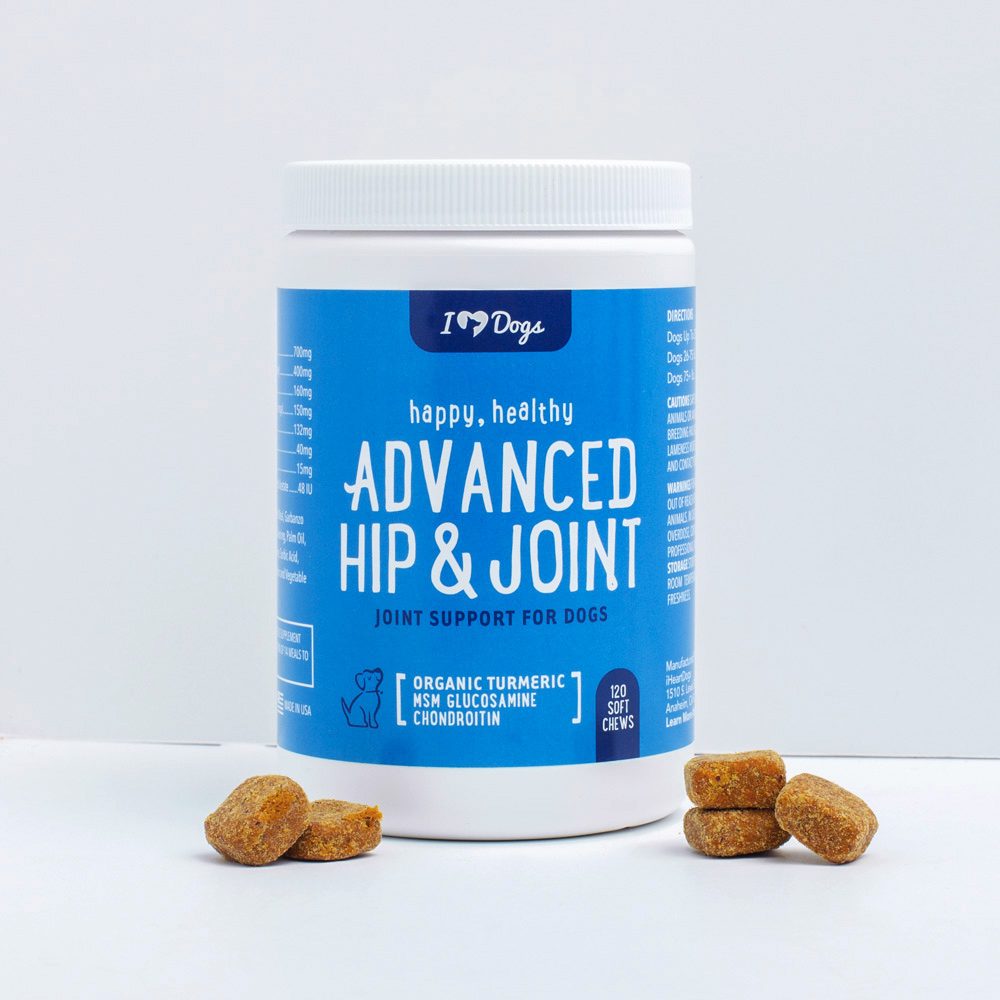There is some buzz about joint care supplements. People are intrigued by an opportunity to circumvent or augment the usual recommendations and drawn by the lure of alternative (non-traditional) options. In the past, veterinarians have been skeptical of complementary medicine, but joint supplements containing ingredients like glucosamine, chondroitin and others have science backing their effectiveness.
Good Things Come to Those Who… Supplement?
Studies have indicated that ingredients like glucosamine and chondroitin (and others) can reduce the inflammation in canine patients suffering from osteoarthritis.1 More work needs to be done to define exact amounts and digestibility of individual supplements. It might not be exactly defined how much benefit will be gained by adding these products to your dog’s diet, but as long as you follow the label directions and consult with your veterinarian, the chances are high that your dog will see some benefit. This falls into the category of “might help and probably won’t hurt.”

We Have Come a Long Way, Baby
Since science has started to realize the possible health benefits, more and more manufacturers have come on board with supplements. This is great because it gives dog owners many options in form and palatability so we can find one that is easy to give to our own dogs. Beware however, as more companies seek financial gain from the trend, the possibility of low quality products increases. Be sure that you ask your veterinary care team to help you sort through the options and find one that is formulated with high quality ingredients as a priority over profit.
Dogs Are Not Little People
Beware, joint supplements designed for human patients may not be beneficial for pets. Humans have a different metabolism than dogs and products proven effective for them may not work the same in dogs. Just because a product is safe and effective for you, does not mean that it is for your dog. Would you actually take your dog’s medication for your self? Probably not, so don’t expect him to take yours. Choose a supplement that is tested and labeled for use in dogs.
Less Is More
Because these products are designed to be enticing and easy to give, cases of accidental ingestion are very common. These medications can be helpful when given at recommended doses, but can be dangerous if given in excess. Supplement products are frequently accidentally ingested by dogs causing a trip to the animal ER. Always follow the label and the advice of your veterinarian and store supplements far out of reach.
Supplements are exactly what the name suggests-supplemental. They only enhance other medical management of disease and are not meant to be a standalone therapy. They are an exciting adjunct to the arsenal of treatments to help fight osteoarthritis and should be discussed with your vet.
 Note from the iHeartDogs Team: If joint care supplementation makes sense for your dog, we’d encourage you to try our new line of Happy, Healthy Advanced Canine Joint Soft Chews or Hypoallergenic Joint Care. We spent over a year developing what we believe is the most complete canine joint care soft chews available, containing a unique formula of 8 power ingredients. And unlike any other product, each purchase provides 14 meals for shelter dogs!
Note from the iHeartDogs Team: If joint care supplementation makes sense for your dog, we’d encourage you to try our new line of Happy, Healthy Advanced Canine Joint Soft Chews or Hypoallergenic Joint Care. We spent over a year developing what we believe is the most complete canine joint care soft chews available, containing a unique formula of 8 power ingredients. And unlike any other product, each purchase provides 14 meals for shelter dogs!
Do you want to know more about dogs and other animals? Follow me on Facebook by clicking here.
These statements have not been evaluated by the Food and Drug Administration. This product is not intended to diagnose, treat, cure, or prevent any disease. The information on this website is not intended to replace a one-on-one relationship with a qualified health care professional.
References:
1. Review of dietary supplements for the management of osteoarthritis in dogs in studies from 2004 to 2014.J Vet Pharmacol Ther. 2016 Feb;39(1):1-15. doi: 10.1111/jvp.12251. Epub 2015 Jul 23.Comblain F, Serisier S, Barthelemy N, Balligand M, Henrotin Y.

